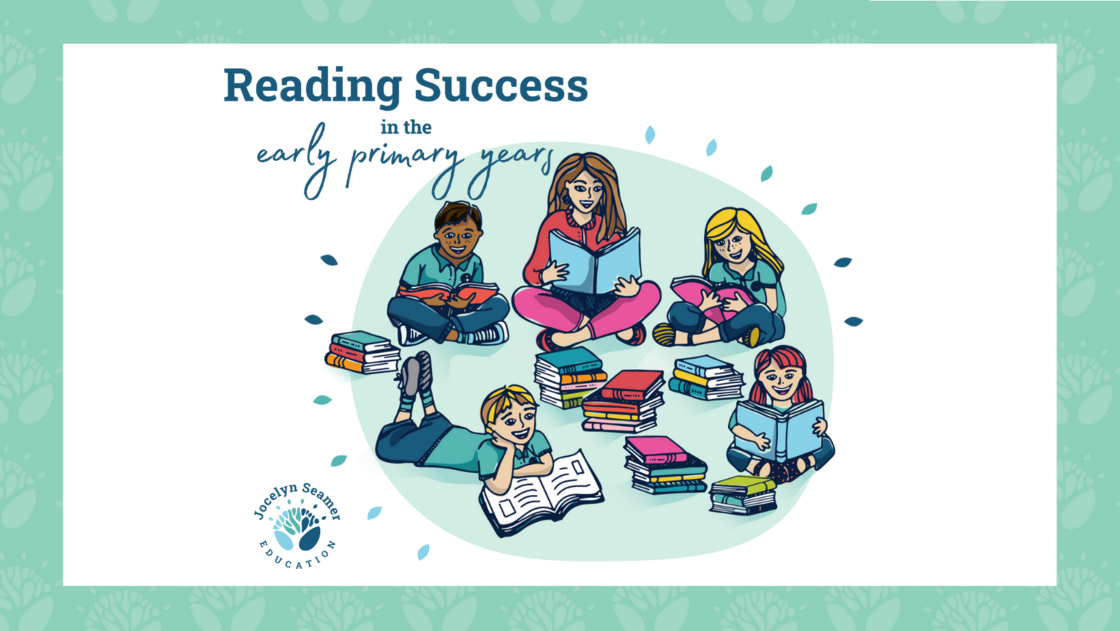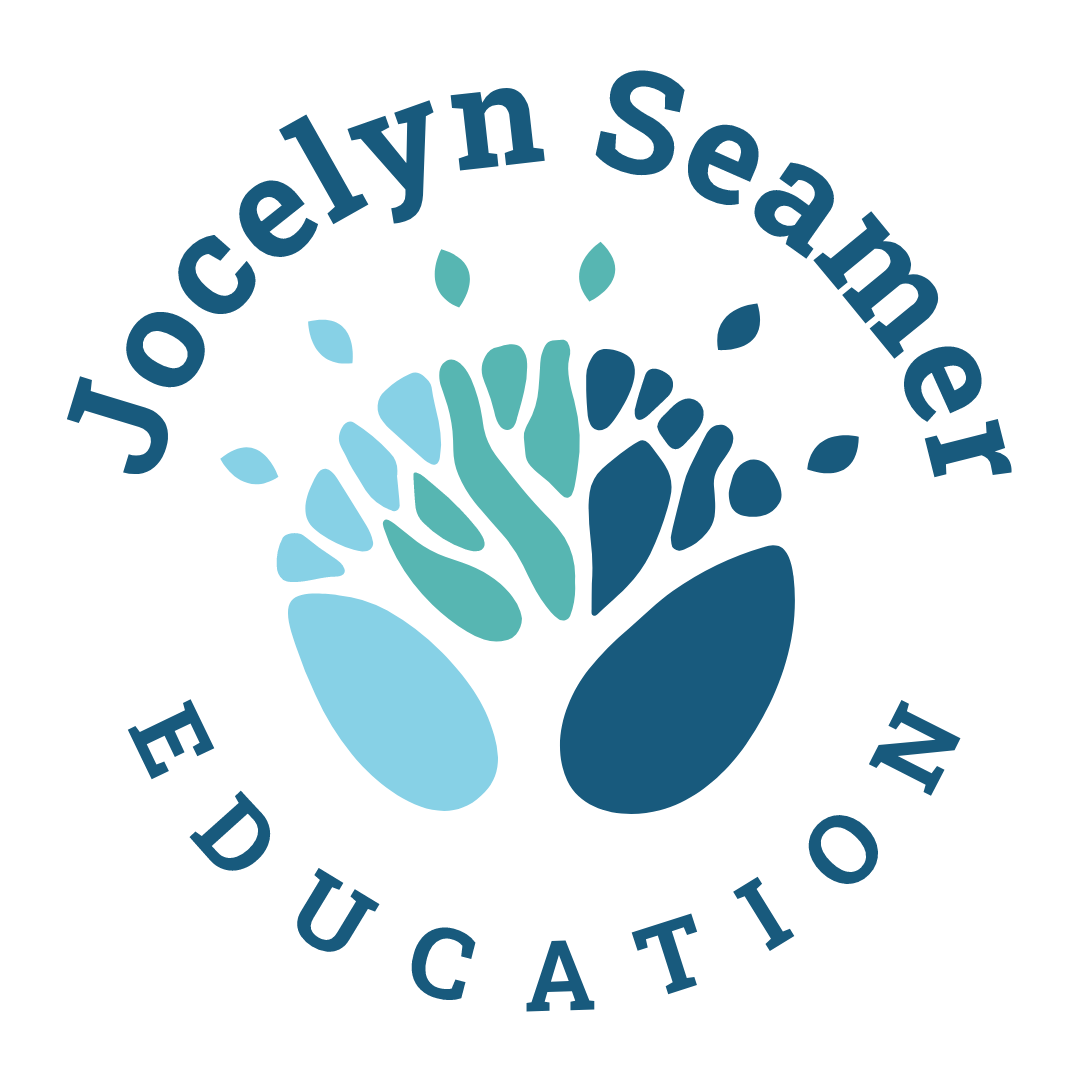Structured Literacy: a Solution to Teacher Overwhelm

There has been a lot of talk in the media in recent weeks about the difficulties experienced by the teaching profession. The television show, 60 Minutes presented a story about teacher workload and teacher shortages. A former teacher recently spoke on stage about how “…Teachers’ hearts are broken” by the work we are asked to do, and we have seen industrial action on the news. I don’t, for one minute, want to imply that there are no issues that need attention in education. What I do want to do in this post is shine a spotlight on some of the great work happening in schools and share my thoughts on the connection between structured literacy and teaching wellbeing.
Yesterday I spent the best part of the day with the terrific literacy leaders of a Victorian primary school as they reflected on the past 18 months and planned the next steps in their school’s literacy instruction journey. This is a school that, through two of the hardest years schools have known in recent memory, has implemented a systematic synthetic phonics program, helped their teachers embrace explicit teaching and continues to strive for growth and success. This is also a school who are saying, “You know what? Things are still a bit tricky, but our students need us to stay focused on our improvement journey so that we can be the best teachers we can be to help them achieve great results.” When I hear our whole profession characterised as being full of heartbreak and disaster, it just doesn’t match with the reality of the schools that I am working with.

I would also like to give a shout out to the local school here in Tasmania who I’ve been working with over the past few terms. This is a school that serves a low SES population of students who often need a bit of extra love. This school made terrific plans last year to implement my Reading Success in Action lessons and put a lot of time into upskilling their staff. They invested heavily in decodable texts and ended the 2021 school year looking forward to what 2022 had to offer. What 2022 brought was a COVID outbreak where just about every member of staff and a very large number of students contracted the virus. Guess what this school did? They gave themselves a few weeks at the start of the year to ‘settle in’ and then got on with their plans of flexible grouping across classrooms for an hour a day with a focus on explicit teaching and explicit, systematic instruction. Despite the hardships of Term 1, results are already extremely encouraging and the whole early years is excited about what they will achieve as a team throughout the rest of the year. Middle and Upper Primary are about to embark on their own change journey.

Finally, I’d like to shine a spotlight on the teachers who participated in the Reading Success Teach Along in Term 1. These teachers came from all over Australia, from New Zealand and from Canada. Their schools use different programs and they come from all different contexts. Despite busy school and home lives, teachers engaged week after week (both live and through recordings at their own pace) so that they could refine their teaching practice and positively impact the lives of their students. They will continue to rewatch recordings and refine their practice over the year to come. One of the most wonderful things to hear is when people say that using the techniques and routines from the Teach Along has helped them get great results for children and that they feel reinvigorated in their teaching for the first time in years.

And here’s the connection between structured literacy and teacher wellbeing. When you adopt a structured, explicit and systematic approach to literacy instruction, you simplify and streamline both learning AND teaching. Regardless of the (high quality) program you use to organise content, having everyone on the same page, with resources and instructional routines already decided upon, significantly reduces the amount of time needed for planning. However, it’s not just about the ‘stuff’. The positive benefits for both teacher and student wellbeing also come from the reduction in cognitive load. When you know what the path ahead is going to look like and what the milestones are that you will reach along the way, you can just focus on enjoying the journey. For teachers, this means having the mental and emotional energy to differentiate effectively and respond to student need. You just don’t have this capacity when you feel uncertain about the road ahead and spend all of your time ‘creating’ your teaching from scratch. Some might chafe at the perceived loss of autonomy in adopting a structured approach to teaching across the school, but I’d argue that teachers still have plenty of autonomy when it comes to so many aspects of the classroom. I would also point to benefits of consistency for students and staff alike.
Teaching using a structured approach that gets tangible results feels good. It helps us feel hopeful when we know how to help a student in need. As one teacher pointed out to me, “In the past, I’d get a student in my classroom who was so far behind everyone else or students who really weren’t progressing as I believed they could be. I never really knew how to help them. Now I KNOW what to do.” It is this sense of efficacy and success that keeps us moving forward; that helps us build that all-important sense of making a difference. Teacher wellbeing isn’t just about morning teas and boxes of chocolate (although that’s nice too). It is also about creating working conditions that don’t overload and overwhelm teachers. A structured approach to teaching that includes the provision of high-quality resources and programs can certainly be a part of that picture.
Finally, I’d like to remind you that we are biologically primed to notice the negative. It can be much harder to see the positive things in our lives. As such, we need to work harder at it. When you are feeling a little low or frustrated or are wondering whether what you do really makes a different, make a list of the positive things you have achieved and the positive things you see around you. We need to be on the lookout for the good stuff. This is not about ‘toxic positivity’, but about creating perspective for ourselves and our colleagues.

Yes, there are hard days. Yes, there are things that need improving or fixing in our profession. Yes, there are times when it’s valid and useful to express this. However, teaching is not all doom and gloom. There are many wonderful things going on in our schools and there are teachers who feel a sense of purpose and hope in the work that they do. Let’s celebrate that and help our colleagues to join us on the bus so that we can positively impact, not only our students’ lives, but our own professional lives as well.
Looking for ready-made resources to help you implement structured literacy in your classroom? Read more about the Resource Room here.
If you would like to join the teams and teachers mentioned in this post and hop on board the Science of Reading Bus.

 Jocelyn Seamer Education
Jocelyn Seamer Education
6 comments
Hi Jocelyn
Thank you for being so inspirational and motivating us! I wish we had a leader like you at our school.
Just letting you know that there is no link to your reading class. I tried clicking on the picture but it didn’t go anywhere.
Warm regards,
Jan
________________________________
Thank you for those kind words Jan. I feel privileged to be able to work with wonderful teacher and teams.
Take care
Jocelyn
PS - the link is all fixed now. :)
A great read- just what I needed to hear!
Thanks Jocelyn. I would like to send out a THANK YOU to the gorgeous scallywags in my class, and yes I do let them know how proud I am of them, who have continued to engage and learn despite absences and interruptions. Following the Daily Literacy Block has meant routine, repetition and expectations are known to everyone. Yes we can focus on the negatives, but when I witness the successes, no matter how small, and the impact it has on my students, I am so thankful and appreciative of having participated in many of Jocelyn's sessions but of the support from those on the Science of Reading and Learning juggernaut, I know in my heart and from the data I am gathering, this is exactly what our students need. It is so very rewarding for myself as well on both a professional and personal level.
Alison, seeing what you have done with your students over the past couple of years has been wonderful! You are so right about the structured literacy community being a huge support. It really is empowering to be part of a profession and movement that is changing life outcomes for kids. Jocelyn
Amen and alleluia!! Let's support our teachers to deliver effective literacy instruction in a way that means we are effective, differentiated and ON TASK! life could be so much simpler!
Leave a comment